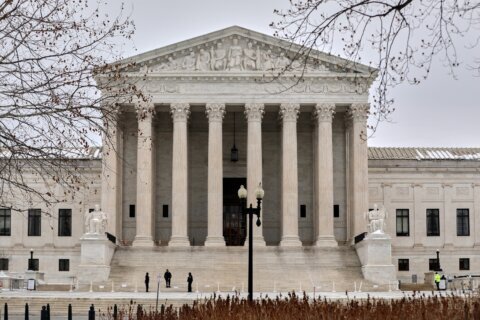Coronavirus misinformation is infecting the unlikeliest of places: Wall Street research that investors rely on to trade in the financial markets.
In an early August note to clients, an analyst at a research firm called Fundstrat Global Advisors, which distributes widely-read reports and analysis to investors, cited a series of tweets by an ophthalmologist named James Todaro who painted a rosy picture of the US population’s potential for developing herd immunity to coronavirus.
In a research note sent to clients on August 11th, Fundstrat co-founder Thomas J. Lee included four tweets Todaro sent the previous day. One of Todaro’s tweets cited “growing evidence that T cell immunity allows populations to reach herd immunity once 10-20% are infected with SARS CoV-2,” the coronavirus that causes COVID-19.
Todaro’s claim is not supported by credible scientific research. In fact, Shane Crotty, an immunologist at the Center for Infectious Disease and Vaccine Research at the La Jolla Institute for Immunology, told CNN Business that Todaro’s tweets are “dangerous” to public health.
The presence of Todaro’s tweets in a Wall Street research note suggests the campaign to downplay the virus championed by the president and his supporters is gaining traction. Todaro is one of the people who appeared in a viral video in July promoting hydroxychloroquine that Facebook and YouTube later removed because they said it was promoting misinformation.
CNN confirmed that Todaro received a medical degree in 2014 from Columbia University’s Vagelos College of Physicians and Surgeons, but he does not appear to have practiced medicine beyond the end of his residency at the Kresge Eye Institute in Detroit in 2018, according to his LinkedIn profile and tweets.
He last performed eye surgery in 2018 “before stepping away from ophthalmology to focus exclusively on blockchain and cryptocurrency,” according to Todaro’s profile on the website of Blocktown Capital, a blockchain firm he started.
Coronavirus misinformation
While coronavirus misinformation is ubiquitous on social media, there’s an expectation that Wall Street research is more reliable than the kind of information that winds up in most people’s Facebook feeds. Analysts funnel research into a private pipeline that influences whether paying clients feel bullish or bearish about the economy, corporate profits and, more recently, the trajectory of the coronavirus.
“There should be a difference between Wall Street research and what’s available on the internet. It’s just that simple,” said one hedge fund manager, who insists that clients who pay for information and analysis expect it to be well vetted and researched. This person isn’t a Fundstrat client but was reacting to the Todaro tweets that Lee included in his note.
In his note, Lee cautioned that Todaro’s assertion on T cells was “not proven,” and said that “we are not healthcare experts, so take our commentary with a grain of salt.” But Lee elevated Todaro’s interpretation of science without mentioning Todaro’s lack of expertise in immunology or epidemiology.
Lee, Fundstrat’s co-founder and head of research, is a 25-year industry veteran who has appeared on CNBC, Fox Business, Yahoo Finance and Bloomberg more than a dozen times this year. He was on CNN Business as recently as last month.
In response to repeated and detailed requests for comment, Lee did not address any of the specific claims in his August 11th note, sent by email to clients. Instead, he referred CNN Business to an article that cited Dr. Anthony Fauci, the director of the National Institute of Allergy and Infectious Diseases, saying that it is “conceivable” that common cold T cells “could have some degree of protection.”
Providing some degree of protection has little to do with herd immunity, which comes only after many people have either been effected and recovered, or vaccinated. Doctors say trying to achieve herd immunity by allowing coronavirus to simply make its way unimpeded through the population could cost 2 million American lives.
An industry veteran
Before co-founding Fundstrat in 2014, Lee worked at J.P. Morgan for seven years, according to his Fundstrat bio. He served as the chief US equity strategist within J.P. Morgan’s investment bank before leaving.
On its “About Us” web page, Fundstrat says that it focuses “on delivering analysis, not opinions, and as an independent research provider, our clients are assured that our work is tailored to provide fresh and innovative intelligence to aid in their investment process.”
Lee has been praised by some financial observers for correctly predicting the market’s strong rebound from its March lows.
So when Lee included a string of Todaro’s tweets in a note to clients on August 11th, it alarmed another industry insider, Michael Cembalest, chairman of Market and Investment Strategy for J.P. Morgan Asset Management. A person familiar with the bank’s research relationships confirmed that Fundstrat is one of J.P. Morgan’s many research providers.
Cembalest took issue with the Todaro tweets Lee cited, which suggested that “some kind of herd immunity is reached” when “a community has 10-20 percent infection rate.”
“It was one of the more disturbing pieces of research I’ve seen in 33 years in this industry,” said Cembalest, in a note to JP Morgan clients several days later. “Misinformation and mindless regurgitation of poorly vetted sources are, in my view, part of the reasons why” the United States is behind other developed countries in controlling the virus, Cembalest wrote in his August 18th note.
Lee’s inclusion of Todaro’s tweets “was highly misleading, as the casual reader would infer that they were from an authoritative source and not from someone with no special training in the area and who had left the medical field,” said Georgetown University associate professor James J. Angel, who specializes in regulation of global financial markets and reviewed Lee’s August 11th note at CNN’s request.
When misinformation winds up in Wall Street research notes, it influences the way investors think, according to Cembalest. “It’s like defense attorneys who can say something that gets stricken from the record, but it gets retained in the minds of the jurors,” Cembalest said.
A controversial tweet
Cembalest was also disturbed by Lee including another Todaro tweet in his August 11th note, which suggested that the “coronavirus vaccine industry” had an incentive to push for lockdowns and masks. Lee described the tweet as “noteworthy, not because it is true,” but because it “highlights the complex incentives.”
Lee added that “experts dismiss steroids or HCQ [hydroxychloroquine] as treatment regimes, because it could also not be that profitable,” without providing evidence to support that statement.
But in June a panel at the National Institutes of Health recommended the common steroid dexamethasone — which suppresses inflammation — in patients with severe and critical Covid-19.
Cembalest told CNN that Lee’s August note isn’t the first time he believes Lee trafficked in unproven theories without offering legitimate sources. For example, Cembalest provided CNN with an April email exchange between the two men where Lee wrote, “I think the US states/hospitals are now seeing incentives to report higher cases.” There’s no evidence to support this assertion.
Questionable sources
Todaro’s Michigan medical license and license to prescribe controlled substances both lapsed in June 2019, according to that state’s Department of Licensing and Regulation. Todaro, when asked about his credentials and Dr. Crotty’s criticism, replied that Crotty should “look at what’s happening in the real world.”
Yet Todaro’s lack of recent practice hasn’t prevented him from spreading dubious theories about coronavirus on his widely-viewed social media accounts — or becoming a darling of the right-wing media.
Todaro co-wrote a widely criticized paper in March touting hydroxychloroquine as an effective treatment for coronavirus, which he posted as a Google Doc. After Tesla founder Elon Musk blasted the paper out to his Twitter followers, it was cited by Breitbart News and The Blaze, and one of Todaro’s co-authors went on Tucker Carlson’s Fox News show to tout it as a potential cure — the same day Trump started promoting the drug in his press briefings. More recently, Todaro was a guest on Steve Bannon’s podcast.
One of the people listed as a co-author of Todaro’s paper subsequently asked to be removed from the paper, saying he had nothing to do with writing it. Later, as other studies raised doubts about hydroxychloroquine’s effectiveness and safety in treating Covid-19, Todaro’s paper was temporarily blocked by Google. Links on Twitter now warn that it could be “potentially spammy or unsafe.”
A viral video
In July, Todaro appeared in a viral video of doctors promoting hydroxychloroquine speaking on the steps of the United States Supreme Court. The video — which was retweeted by Trump, his son Donald Trump, Jr. and other conservative figures — showed Todaro and other doctors in white gowns with the words “America’s Frontline Doctors” stitched in blue on their chests as they promoted hydroxychloroquine. Other physicians in the video include Stella Immanuel, a Houston doctor who has claimed that alien DNA is used in some medical treatments.
In late July, after that video was taken down, Todaro and several of the other doctors in the video met with Vice President Mike Pence. “Doctors everywhere should be able to prescribe hydroxychloroquine without repercussions or obstruction,” Todaro tweeted after the meeting.
More recently, Todaro has shifted his focus to the idea that the immune system’s response to the common cold could play a role in herd immunity.
Todaro bases his theory on recently published articles in respected scientific journals citing research that shows about 50 percent of the US population has T cells that can recognize the novel coronavirus even though these individuals never had Covid-19. The body’s immune system produces T cells in response to infections, including some coronaviruses that can cause the common cold and that are very similar to SARS CoV-2.
But the presence of these T cells doesn’t mean that 50 percent of the population is immune to COVID-19, according to Crotty, the immunologist who co-led a study on T cells and antibodies.
“Todaro was saying ‘don’t worry, we’re basically there on herd immunity and this is going to be over by October,'” said Crotty, who called out Todaro on Twitter for misrepresenting T cell research. “That’s not what our data says, and that’s not the way the immune system works and this isn’t the way herd immunity works. It’s just incorrect.”
Although Lee acknowledged in his note that Todaro’s viewpoint was controversial, he didn’t mention that Todaro’s previous attempts to spread misinformation have been debunked. There’s no evidence that Lee has updated his clients to reflect that one of the lead researchers in T cells had denounced Todaro’s tweets.
Lee has not responded to CNN’s request for confirmation that he has updated Fundstrat’s clients on either of these issues.







